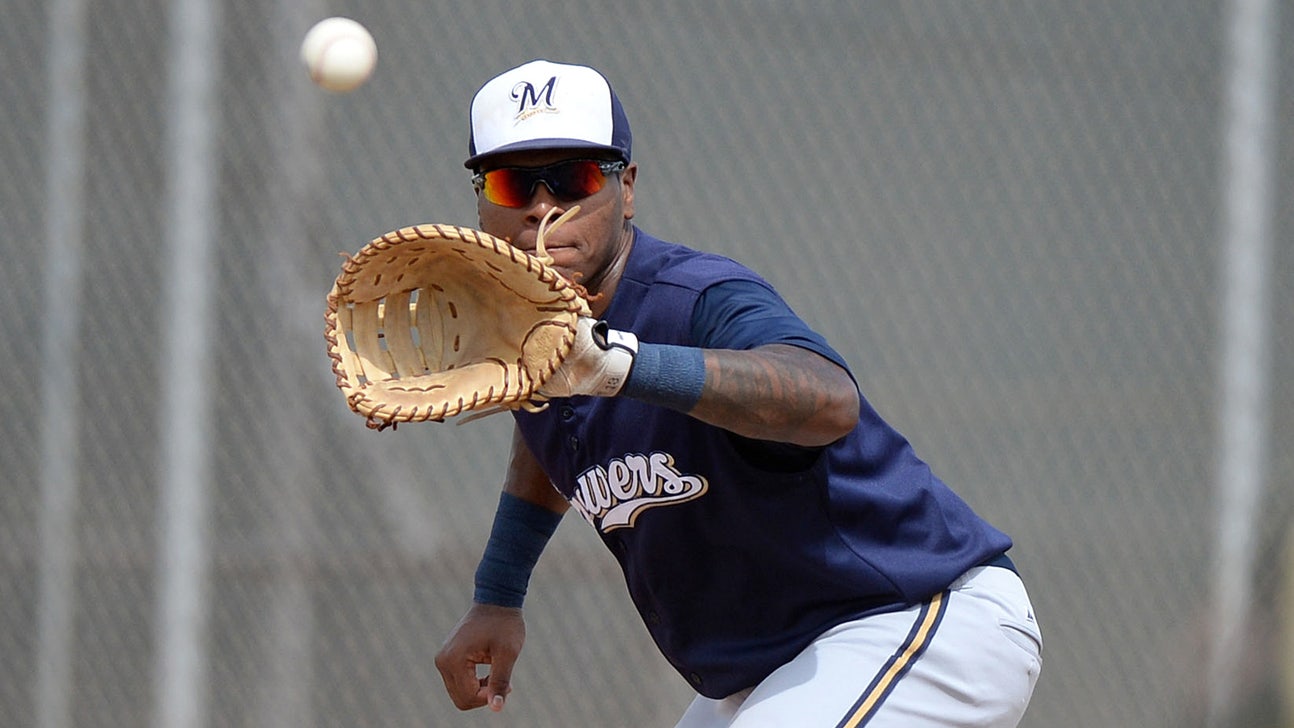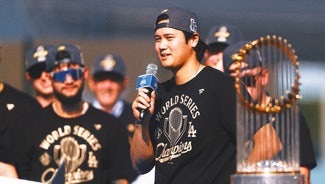
David Denson: 'My sexuality has nothing to do with my ability'

On Aug. 15, Milwaukee Brewers minor-league first baseman David Denson became the first active player in affiliated professional baseball to reveal that he is gay.
Denson, 20, broke the news to the Milwaukee Journal Sentinel. Billy Bean, baseball’s ambassador for inclusion, helped counsel him on his decision.
At this point, Denson is not considered a top prospect; he split the season between the Brewers’ rookie Helena affiliate and Class-A Wisconsin affiliate, batting .235 with nine homers and a .718 OPS in 363 plate appearances.
Here, for the first time, Denson reveals how his conversations with Bean gave him the confidence to announce that he was indeed a gay baseball player:
“I first had contact with Billy, I’d say a year ago. I was dealing with everything I was dealing with. I was talking to my team psychiatrist at the time. When I came out to her, she said, would you like to talk to somebody who you feel would relate to you more, who had been in a similar situation? I was like, ‘Sure.’
“She actually got me in contact with Billy. Ever since then, he has been like a big brother to me, helped me through everything that I can possibly think of. And he never, not once, ever brought up the question or the point of, ‘You should come out.’ Or, ‘I just think you should come out.’ He never pushed the idea of coming out.
“It was more from the standpoint of, ‘Let’s talk about baseball.’ He succeeded in getting baseball as the No. 1 thing in my mind and made me know that it was OK to be who I was. Every time we talked, it was more about baseball than my sexuality at all.
“He was more and still is a big brother. I kept telling him that I wanted to come out. He was like, ‘Take your time. There’s no rush.’ He always said, ‘Once you come out, there’s no taking it back.’ There were times where I would get bursts of confidence. I was like, ‘I can do this. I’m going to do this today.’ I would let him know. And the next day, I would be like, ‘I can’t do this. I’m not going to do it.’
“My levels (of confidence) were going up and down because I was on this emotional rollercoaster. He always stayed level. He would always be positive. He would say, ‘Make sure this is what you want to do. But make sure that you’re ready to play the game. When you get to the field, it’s game time. I understand it’s hard. But you’ve got to learn to focus.’
“At the end of the day, he said, ‘You’re still an athlete.’ That’s what always made me feel comfortable. That’s all I ever wanted to be seen as. I don’t want to be seen as a gay baseball player. I want to be seen as an athlete just like everybody else. He helped me see that.
“When I decided to come out, it had never been done before. Of course, I came out to my family. I came out to my teammates later on (before) the article came out. They gave me even more confidence to come out (publicly).
“But from the standpoint of talking to somebody, relating to somebody, somebody who played the game, somebody who went through things that go on in a locker room, how people throw out slang and words, have their own gestures ... I never really knew how to go about that situation.
“Whenever I tried to talk to my parents and tried to relate it to them, they were always stuck in defense mode. No parent wants to see their child struggle, or see their child sad, anything like that. When I was able to talk to him and he completely understood what I was talking about, that helped me 1,000 times more than I could ever think of. We could relate on so many different levels that I couldn’t relate to anybody else with.
“I do have friends who are gay. I tried to talk to them. But they don’t go through the daily practice and games and workouts and locker room. I’m glad he was there from that standpoint. He said, ‘Whatever you do, whenever you decide to come out, you will know when the time is right. Nobody has the right to tell you when to do it. You are the driver of your own life. So if people want to say things like, ‘Oh, you’re gay.’ Or, ‘Oh, you’re a faggot.’ It’s OK for them to make such assumptions, but until it actually comes out of your mouth, they have no power over it. Until you finally decide to open that chapter of your life up to the rest of the world to people you feel you can trust, it’s all in your hands.’

Denson believes coming out has helped him clear his mind so he can focus on baseball instead of on how others are perceiving him.
“Me coming out was because I finally felt it was right for me. It was best for me, in order to play my game, to have a clear mind. Beforehand, I was trying to please everybody else’s standards. Everyone always said, ‘There could never be a gay professional athlete.’ Or, ‘People who are gay aren’t as good athletes as people who are straight.’ All the stereotypes you could possibly think of. There are some stereotypes people have. That’s what I was afraid of ... It actually turned out to be totally opposite.
“Of course, people are going to have their own comments. That’s another thing he told me, ‘Don’t focus on what anybody has to say. When people are being negative and not understanding, there’s nothing you can do about that. All you can do is respect their views and respect what they believe in. But at the end of the day, you’re doing something that you feel will make you better as a player and as a person. That’s all you can really focus on.’ I took that as the truth. I can’t control what another person thinks. I can’t control what another person says. What I can control is the attitude I have. That’s all I can control.
“I was so scared and so nervous about coming out and being judged. I think if I didn’t have him there, I would have just kept it in the back of my mind. I wouldn’t have acted on it. It would have ate at me emotionally. It would have consumed me as far as living a double life.
“Everyone knows baseball is more a mental game than a physical game. I didn’t have a clear mind. There were times where I would tell my parents, ‘I want to quit. I can’t do this.’ All the negatives that were running through my head, I was already setting myself up for failure, telling myself I wouldn’t be accepted in the game, that I wasn’t good enough to play this game because of my sexuality.
“But because I was able to express that to someone I could relate to, who could relate it back from a baseball standpoint and get my mind back on track with baseball, that helped me to finally just realize, ‘You know what? I can play this game. And because of this advice I’m getting from somebody who I could relate to, who has been there for me as a friend, who is a positive role model in my life, I can do this. Why can’t I do this because of my sexuality? My sexuality has nothing to do with my ability.”



